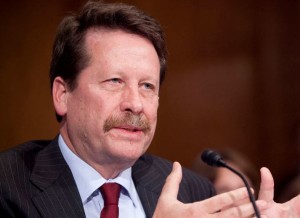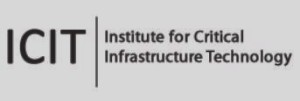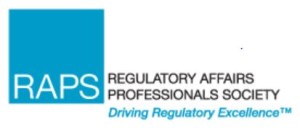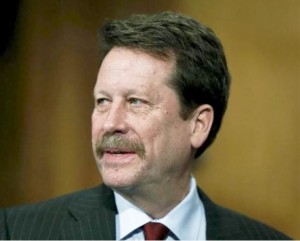- Senate vote on Robert Califf may put him back on track for top FDA job (statnews.com)FDA to overhaul opioid policies. Will it ease concerns over Califf? (statnews.com)UPDATE: FDA chief nominee Califf likely to be confirmed after clearing key Senate vote (biopharmadive.com)How the opioid crisis convinced these senators to oppose advancing Califf nom, in charts (biopharmadive.com)
...Dr. Robert Califf...Obama’s choice to head the Food and Drug Administration, may be getting back on track to win final approval from the Senate...In a move designed to circumvent opposition to Califf, who was nominated in September, Senate Majority Leader Mitch McConnell has scheduled a procedural vote for Monday afternoon. If Califf wins the support of at least 60 senators in that vote, he would move on to a final confirmation vote — likely Tuesday — and his Senate opponents would lose their leverage to stop him...The move will likely vanquish the remaining senators — led by Democrats Bernie Sanders of Vermont, Edward Markey of Massachusetts, and Joe Manchin of West Virginia — who disapprove of Califf because of his close ties to industry and what they consider a poor FDA response to the opioid epidemic...
- Compounding pharmacies investigated for possible fraud tied to pain creams (healthcarefinancenews.com)
The Department of Justice is investigating potential fraudulent claims and billing linked to specialty creams...that claimed to treat pain symptoms...investigators have claimed many of these specialty creams have little or no medicinal value...the issue is with the alleged false claims, not the compounds themselves...It's part of a larger issue of healthcare fraud...All these people submitting claims … for drugs that have absolutely no effectiveness. Are they doing it with knowledge, and seeking reimbursement for it? It's the modern day snake oil salesman...the International Academy of Compounding Pharmacies said the creams in question "benefit people and are non-addictive."...No charges have been filed...
- Washington’s Prescription For Cheaper, And Unregulated, Medicines (forbes.com)
In 2011, in an effort to bring a lower-cost drug to the market, the Food and Drug Administration was forced to accept the widespread compounding of a specialty drugs...The agency’s submission involved an old, and previously cheap, generic medicine that had secured some renewed exclusivity, and was being sold as a higher-priced specialty drug. But the FDA’s move deliberately undermined the agency’s own approval requirements...It sent an unambiguous message that FDA wouldn’t try to enforce its already weakened authority over compounding–so long as the price of the knock-off drug was right...The compounding of drugs grew precipitously over the next few years...the passage of the 2013 Drug Quality and Security Act...closed loopholes that allowed compounding outfits to operate beyond the bounds envisioned when the local practice of pharmacy was carved out from typical FDA oversight...some are seeking to co-opt some key provisions in that law as a way to once again expand compounding well beyond the practices’ historical concept. Once again, these efforts are being insincerely waged in the name of increasing drug competition and lowering costs…The co-opting of the practice of pharmacy compounding in this manner also puts the entire practice of pharmacy at risk. Compounding remains an important pharmacy activity...But each time outfits try to exploit the practice simply as a way to evade traditional regulation of drug manufacturers; they create risks and bad outcomes that ultimately lead to new restrictions. That was the legacy of the 2013 passage of the DQSA. Now some who instigated that law want to do it all over again.
- Deficiencies Found at Theranos Lab (wsj.com)
Federal inspectors will soon release details on problems at blood-testing facility...U.S. health inspectors have found serious deficiencies at Theranos Inc.’s laboratory in Northern California...The problems were found during an inspection by the Centers for Medicare and Medicaid Services, the chief federal regulator of clinical labs, at the blood-testing company’s facility in Newark, Calif. Failing to fix the problems could put the Theranos lab at risk of suspension from the Medicare program...inspection results are expected to be publicly released soon...
- Report calls out weak FDA stance on medical device cybersecurity, favors stronger regulation (healthcareitnews.com)Assessing the FDA's Cybersecurity Guidelines for Medical Device Manufacturers: Why Subtle 'Suggestions' May Not Be Enough (icitech.org)
...the Institute for Critical Infrastructure Technology, a bipartisan collaborative meant to bridge the gap between federal agencies and private-sector leaders in the interest of protecting the nation's technology backbone, claims recent guidance from Food and Drug Administration for device makers falls way short...In practically all matters of cybersecurity within the health sector, the FDA seems to be in a constant state of offering subtle suggestions where regulatory enforcement is needed..."Assessing the FDA's Cybersecurity Guidelines for Medical Device Manufacturers: Why Subtle 'Suggestions' May Not Be Enough," knocks the agency for failing to implement enforceable regulations for manufacturers...It may be beneficial to healthcare providers, healthcare payers, and legislators to petition the FDA to make the guidelines regulatory. Otherwise, medical device manufacturers could ignore the guidelines altogether...
- FDA advisory panel strongly backs biosimilar Remicade (reuters.com)FDA Briefing Document Arthritis Advisory Committee Meeting February 09, 2016 (fda.gov)
A medical advisory panel to the Food and Drug Administration...recommended approval of a cheaper biosimilar form of Johnson & Johnson's Remicade (infliximab) arthritis drug that could eventually batter sales of the branded product...The panel, by a vote of 21-3, supported use of the biosimilar from Celltrion Inc and Pfizer Inc, called Remsima. The FDA usually, but not always, follows the advice of its advisory panels...The independent panel determined that clinical trials of Remsima showed no clinically significant differences with Remicade in treatment of rheumatoid arthritis and a related condition called ankylosing spondylitis...Moreover, the panel agreed Remsima is likely as safe and effective for other conditions Remicade treats, including psoriasis and inflammatory bowel conditions like Crohn's disease and ulcerative colitis, even though Remsima was not tested against those conditions.
- Payers see price leverage with entry of Merck hepatitis C drug (reuters.com)
...pharmacy benefit managers expect the launch of Merck & Co Inc's new hepatitis C pill to improve their leverage in price negotiations with drugmakers...The Food and Drug Administration...approved Merck's Zepatier (elbasvir and grazoprevir) for treatment of patients infected with the most common form of the liver-destroying virus, genotype 1, as well as the less common genotype 4...The list price for the new drug is $54,600 for a 12-week regimen - compared with $94,500 for Gilead Sciences Inc's Harvoni. A multi-pill regimen, Viekira Pak, from AbbVie Inc has a list price near $83,000..."We look forward to working with Merck," Express Scripts said..."Having multiple, clinically effective options allows us to again leverage competition and make medicine more affordable for our clients while ensuring appropriate patient access."..."Given Merck's interest in participating in such a large market, we model and fully expect increased price competition and we also view Merck's list price as a rational way to stay out of the drug pricing spotlight,"...
- Dreaded U.S. FDA Form 483s in the spotlight in China (fiercepharmaasia.com)
While much of the news in recent months on warnings issued by the Food and Drug Administration centered on alerts issued to Indian pharmaceutical manfacturers, active pharmaceutical ingredient and drug manufacturers in China have also received their own set of alerts under the FDA's Form 483 regime, according to a report by the Regulatory Affairs Professionals Society... 41 pharmaceutical manufacturing sites in China and 5 in Hong Kong are currently included on the agency's import alert list and are banned from shipping drugs to the United States, compared to the 42 sites listed as banned in India...RAPS found that in 2015 more than 80 Form 483s were issued to Chinese manufacturers after 132 inspections...the FDA conducted 203 inspections at Indian facilities...Some of the findings of the FDA reports include data manipulation at several companies where computer files were altered or deleted, missing logbooks, contamination issues and other serious failures in good manufacturing practices...
- Bowing to pressure, FDA to reform painkiller approval process (reuters.com)
Bowing to pressure from lawmakers, Dr. Robert Califf...nominee to lead the Food and Drug Administration, said on Thursday the agency would reform its process for approving opioid painkillers...Last month Democratic Senator Edward Markey of Massachusetts placed a hold on Califf's nomination, preventing it from being voted on by the full Senate, until the agency agreed to convene an advisory panel to review future opioid approval decisions...The FDA said it has agreed
- ...to convene a committee before approving any new opioid that does not have abuse-deterrent properties. And it said the agency's pediatric advisory committee will make recommendations before any new labeling relating to children is approved.
- ...develop additional safety information for immediate-release opioid painkillers; strengthen the requirement for drugmakers to produce information after a drug reaches the market; and expand access to abuse-deterrent opioid drug formulations.
- ...considering making naloxone...accessible over the counter to treat opioid overdose.
- FDA finds Indian drug maker Wockhardt hid failed tests (reuters.com)
Indian drugmaker Wockhardt hid the results of failed tests and deleted data from its systems at a plant in western India, according to a report by the U.S. Food and Drug Administration...Issues around "data integrity", maintaining accurate and consistent databases, are key to the U.S. watchdog, which regulates the world's largest market for generics producers...Wockhardt is the latest of several major players in the $15 billion Indian drugs industry to be hit by U.S. regulatory action over the past few months...It makes around a fifth of its $670 million in annual revenues from the United States...FDA inspectors also reported finding pharmaceutical ingredients that were not stored or labeled properly. A rejected drug batch was stored in the "approved material" area, and some batches did not carry expiry dates, the report said.









